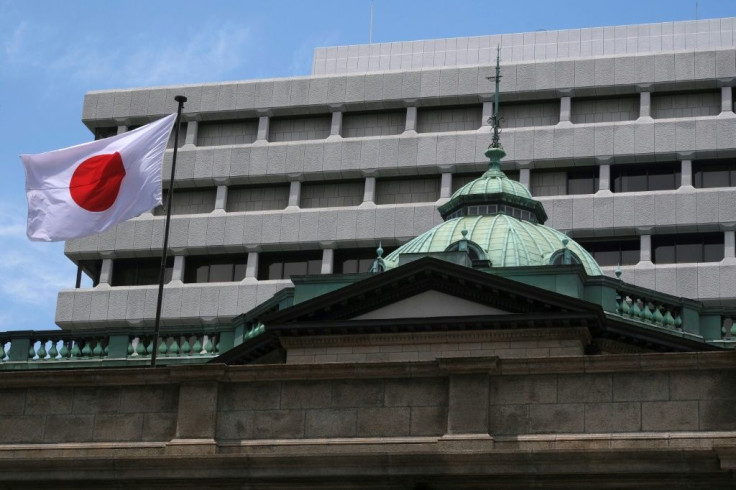Bank Of Japan Lowers Annual Growth Estimate On Covid Pressures
The Bank of Japan revised down its annual growth forecast on Thursday and maintained its ultra-loose monetary policy as the pandemic continues to weigh on the world's third-largest economy.
In a quarterly report on prices and the economy, the central bank predicted growth of 3.4 percent for the year to March 2022, down from its previous forecast of 3.8 percent.
"Downward pressure stemming from Covid-19 is likely to remain on service consumption, and exports and production are expected to decelerate temporarily due to supply-side constraints," the report said.
"Thereafter, however, with the impact of Covid-19 waning gradually, mainly due to widespread vaccination, the economy is likely to recover."
Reflecting this more positive longer-term outlook, the bank revised up its growth forecast for the fiscal year to March 2023 to 2.9 percent from the previous estimate of 2.7 percent.
The BoJ maintained its longstanding target of two-percent inflation, which remains far off despite years of efforts and prices surging globally.
Although other central banks are starting to unwind their easing programmes, "we continue to expect that the BoJ will stay on hold with easing bias, at least until April 2023 when governor (Haruhiko) Kuroda and two deputy governors are scheduled to end their terms," said UBS economist Masamichi Adachi ahead of Thursday's decision.

As other leading economies worry about inflation risks, Japan has been slower to see prices pick up, with businesses afraid of passing on the increased cost to consumers, Kuroda told reporters.
"Japanese companies are more inclined to absorb rises in material costs by cutting their margins and they try to keep sales prices," he said.
"This is because thinking and ways of doing things that arose during deflation have remained."
Compared with other developed economies, Japan's demand has been slow to recover, he said, and Japanese businesses have mostly protected jobs during the pandemic and have been able to increase supply without significant changes to prices or labour cost.
Consumer prices should eventually rise, Kuroda said, driven up by corporate earnings and wages once the pandemic's impact softens.
The BoJ also revised down its inflation forecast for this fiscal year from 0.6 percent to flat, but said this was due to a rebasing of the index.
The bank's special lending programme to support businesses affected by the pandemic is due to end in March, and "we think the discussion on how to end (or not end) it will start in December or January", Adachi said.
© Copyright AFP {{Year}}. All rights reserved.





















